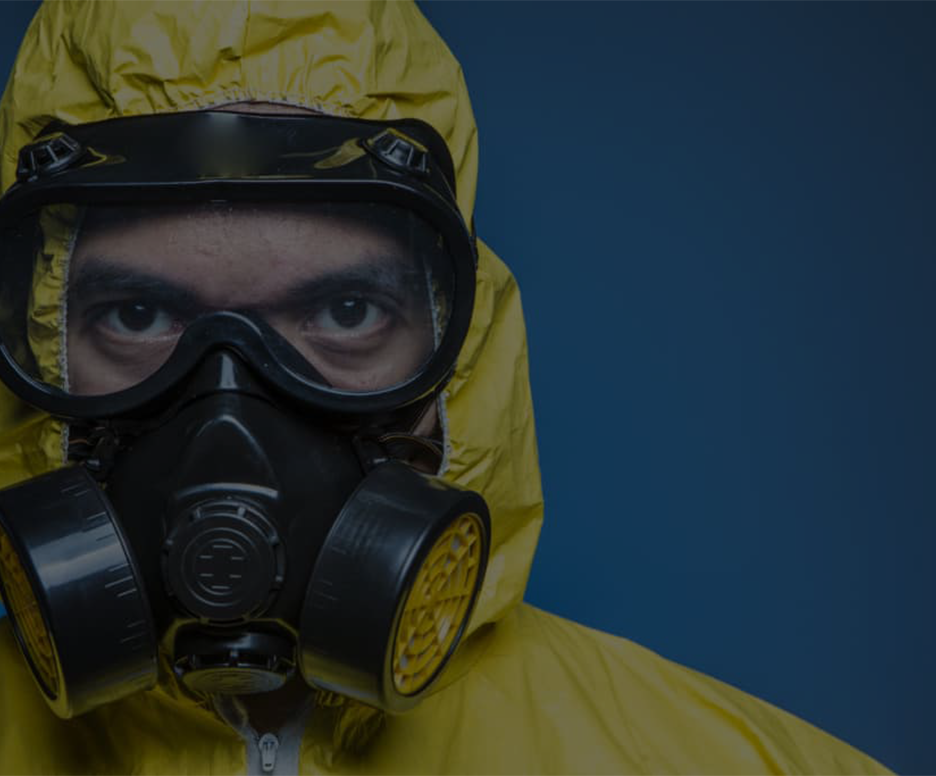
Water Waste Removal: How To Clean And Remove Waste Water
By: 911 Water Damage Experts
Proper water waste removal is a critical aspect of maintaining public health and protecting our environment. Whether it’s managing the grey water from your home or handling the industrial effluents from a factory, the way we treat and dispose of water waste has significant implications.
This comprehensive guide explores the importance of water waste removal, the methods used in various settings, and how effective management can help sustain our precious water resources.
What Is Water Waste?
Water waste refers to water that has been used and contaminated, making it unsuitable for its original purpose without treatment. This includes grey water from household sinks and showers, black water from toilets, stormwater runoff, and industrial wastewater. Each type of water waste requires specific management techniques to ensure it is safely treated and disposed of, minimizing its impact on the environment.
Water waste is different from solid waste in that it remains in a liquid state and often carries dissolved or suspended contaminants. These contaminants can range from relatively benign substances like soap and grease to harmful chemicals, heavy metals, and pathogens. Because of its potential to cause significant environmental harm, water waste must be managed carefully and in accordance with strict regulations.
The Importance Of Proper Water Waste Removal
Protecting Public Health
Untreated water waste poses serious health risks. It can harbour bacteria, viruses, and other pathogens that cause waterborne diseases, including cholera, typhoid, and hepatitis. In residential settings, improperly managed black water can lead to contamination of drinking water sources, putting entire communities at risk.
Industrial water waste may contain toxic chemicals that are harmful to both humans and wildlife. Effective water waste removal ensures that these contaminants are treated and neutralized before the water is released back into the environment.
Environmental Protection
Water waste that is not properly managed can have devastating effects on the environment. Contaminants can pollute rivers, lakes, and oceans, harming aquatic life and disrupting ecosystems. Soil and groundwater contamination can occur when water waste is improperly disposed of on land, leading to long-term environmental damage.
By treating water waste effectively, we can reduce pollution and support the health of our ecosystems.
Regulatory Compliance
In Canada, there are stringent regulations governing water waste management. These regulations are designed to protect public health and the environment by ensuring that water waste is treated before it is discharged. Failure to comply with these regulations can result in significant fines and legal penalties.
Municipal, provincial, and federal agencies monitor and enforce compliance, making it essential for businesses and homeowners to adhere to these standards.
Methods And Techniques For Water Waste Removal
Residential Water Waste Removal
In residential settings, water waste is typically categorized as grey water or black water. Grey water includes wastewater from sinks, showers, and laundry, while black water is wastewater from toilets.
Proper management involves using septic systems or connecting to municipal sewage systems, where the water is treated before being released into the environment. Homeowners can reduce water waste by installing low-flow fixtures, fixing leaks, and being mindful of water use.
Industrial Water Waste Treatment
Industrial facilities generate large volumes of water waste that can contain hazardous materials. Treatment of industrial water waste typically involves several stages, including sedimentation, where solids settle out; filtration, where impurities are removed; and chemical treatment, where harmful substances are neutralized.
Advanced technologies such as reverse osmosis and biofiltration are increasingly used to improve the efficiency of industrial water waste treatment, ensuring that the water released meets regulatory standards.
Commercial Water Waste Management
Commercial establishments like restaurants, hotels, and office buildings also generate significant amounts of water waste. These businesses must implement best practices to manage water waste, including regular maintenance of plumbing systems, proper disposal of fats, oils, and grease, and installing water-efficient appliances.
Routine inspections and preventive maintenance can help businesses avoid costly repairs and ensure compliance with local regulations.
Stormwater Management
Stormwater, which is runoff from rain and snow, can carry pollutants like oil, pesticides, and debris into the sewer system or directly into water bodies. Managing stormwater is crucial to preventing water pollution. Techniques include installing rain gardens, using permeable pavements that allow water to seep into the ground, and implementing green roofs that absorb rainwater. Municipalities often play a key role in stormwater management by maintaining drainage systems and promoting practices that reduce runoff.
The Role Of Water Treatment Facilities
How Water Treatment Facilities Work
Water treatment facilities are essential in managing large volumes of water waste. The treatment process typically involves three stages: primary treatment, where solids are removed; secondary treatment, where biological processes break down organic matter; and tertiary treatment, where advanced filtration and chemical processes remove remaining contaminants.
The treated water is then released into natural water bodies or reused for industrial purposes, ensuring it is safe for the environment.
Innovations In Water Treatment Technology
Recent advancements in water treatment technology have significantly improved the efficiency and effectiveness of water waste removal. Membrane filtration, which uses semi-permeable membranes to remove impurities, is one such innovation. Ultraviolet disinfection, which uses UV light to kill pathogens, is another technique that is gaining popularity.
Nanotechnology, which involves manipulating materials at the molecular level, is also being explored as a way to enhance water treatment processes. These innovations are helping to reduce the environmental impact of water waste and improve sustainability.
Environmental Impact of Water Waste Removal
Reducing Pollution And Contamination
Effective water waste removal plays a critical role in reducing environmental pollution. By treating water waste before it is discharged, we can prevent contaminants from entering rivers, lakes, and oceans. This not only protects aquatic life but also ensures that water sources remain clean and safe for human use.
Preventing contamination of soil and groundwater is also crucial, as it protects the land and preserves it for future generations.
Supporting Sustainable Water Use
Water is a finite resource, and managing it sustainably is essential for future generations. Proper water waste management supports sustainable water use by ensuring that contaminated water is treated and returned to the environment in a safe manner.
This process is integral to the water cycle, where treated water can be reused in agriculture, industry, or even returned to natural water bodies. By supporting sustainable water use, we help conserve this vital resource and reduce the strain on freshwater supplies.
Challenges And Solutions
Despite the progress made in water waste management, challenges remain. Aging infrastructure, population growth, and climate change are all putting pressure on existing water treatment systems.
Addressing these challenges requires investment in infrastructure, public education on water conservation, and the development of new technologies. Solutions such as decentralized water treatment systems, which treat water waste at the source rather than transporting it to a central facility, are being explored to improve efficiency and resilience.
Best Practices For Water Waste Removal
For Homeowners
Homeowners can play a significant role in reducing water waste by adopting simple best practices. These include fixing leaks promptly, installing water-efficient fixtures, and being mindful of water use. Proper disposal of household chemicals is also important to prevent contamination of water waste.
Regular maintenance of plumbing systems and septic tanks can help avoid problems and ensure that water waste is managed effectively.
For Businesses
Businesses can reduce water waste by implementing water-saving technologies, such as low-flow toilets and faucets, and conducting regular water audits to identify areas for improvement. Employee education on water conservation and proper waste disposal can also make a significant difference.
Businesses that invest in efficient water management practices not only protect the environment but also reduce their operating costs and enhance their reputation as environmentally responsible organizations.
For Municipalities
Municipal governments have a crucial role in managing water waste removal infrastructure. This includes maintaining and upgrading sewer systems, enforcing regulations, and promoting water conservation initiatives. Public education campaigns can raise awareness about the importance of water waste management and encourage residents to adopt water-saving practices.
Successful municipal programs, such as those promoting the use of rain barrels or offering rebates for water-efficient appliances, can significantly reduce water waste and contribute to community sustainability.
Water Waste Removal Services
Choosing A Water Waste Removal Service Provider
Selecting the right water waste removal service provider is essential for ensuring that water waste is managed safely and effectively. Factors to consider include the provider’s experience, reputation, and compliance with local regulations.
Certified professionals have the knowledge and equipment necessary to handle water waste safely, whether it’s residential grey water or industrial effluents. Regular service contracts can help businesses and municipalities maintain their water waste management systems and prevent costly issues.
What To Expect From A Professional Service
A professional water waste removal service will typically offer a range of services, including water waste collection, treatment, and disposal. They may also provide maintenance services for septic systems, sewer lines, and other water waste infrastructure.
When working with a professional service, it’s important to prepare your property or business by identifying potential hazards and ensuring that access points are clear. A reliable service provider will work with you to ensure that your water waste management needs are met efficiently and in compliance with regulations.
Future Trends In Water Waste Removal
As the world faces increasing challenges related to water scarcity and environmental degradation, the field of water waste removal is evolving. Emerging trends include the use of circular water systems, where water waste is treated and reused within a closed-loop system, reducing the demand for fresh water. Resource recovery, which involves extracting valuable materials from water waste, is also gaining attention as a way to reduce waste and generate revenue.
Decentralized water treatment systems are another trend, particularly in remote or rural areas where traditional infrastructure may be lacking. These systems treat water waste at the point of generation, reducing the need for extensive transportation and infrastructure. As climate change impacts water availability and quality, adaptive strategies in water waste management will become increasingly important.
Conclusion
Proper water waste removal is essential for protecting public health, preserving the environment, and ensuring regulatory compliance. By adopting best practices in water waste management, we can reduce pollution, support sustainable water use, and meet the challenges of the future.
Whether you’re a homeowner, business owner, or municipal leader, taking steps to manage water waste effectively is a crucial part of safeguarding our water resources for generations
If you have any questions about our article, “Water Waste Removal: How To Clean And Remove Waste Water” or need water damage services, feel free to call us at 1-833-WE-DRY-IT or chat with us on social media or LiveChat!
Related Posts
Fire Damage Restoration Articles
The Dos And Don’ts Of Commercial Fire Damage
Forest Fire House Damage: What To Do After Your House Is Damaged By A Forest Fire And Who to Call?
Fire prevention tips for the summer
How to clean up after a house fire
Fire damage restoration checklist
Fire damage tips: 6 hazards property owners miss
How smoke from fires can negatively affect your health
What are the most common causes of house fires?
10 helpful smoke damage cleaning tips
Mould Removal Restoration Articles
Is Bathroom Mould Dangerous? Powerful Mould Prevention Tips Inside
Dangers Of Bathroom Mould And Tips On How To Clean And Prevent It
Got Bathroom Mould? Here Are Some Must-Know Bathroom Mould Cleaning Tips
5 Signs You Have Mould Growing In Your Walls
“Can I Remove Mould Myself?” Our Mould Removal Experts Have Answers
7 Must-Know Reasons Why You Should Get A Mould Inspection Before Buying A House
Does Mould Attract Bugs? Yes And Here’s What Kind And Why
How To Remove Mould From The Attic [Mould Prevention Tips Inside]
How Rain Causes Mould Growth-Prevention Tips Included
Must-Know Tips: How To Remove Mould In Your Basement
Water Damage Restoration Articles
How to prevent home storm damage
What you can expect from a fire damage restoration company
Water damage prevention tips from the most common problems we’ve seen
Top causes of water damage in commercial buildings and how to find them
Must-know water damage tips: What to do after your house floods
What does good water damage restoration look like?
DIY water damage restoration and the hidden dangers
How to choose the right water damage company
Flast floods: What to do before, during and after a flash flood
What to do when your attic leaks?
This is why water damage is a silent home killer
Related Water Damage Services
Fire damage restoration services
Water damage restoration services
Emergency cleanup services
Mould removal services
Weather damage services


